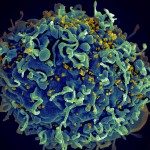Présentation
Zika virus is an arbovirus responsible for recent epidemics in Polynesia and in the Americas. Clinical descriptions range from mild flu-like syndromes to rare but severe neurological complications such as Guillain-Barré syndrome and encephalitis in adults, and congenital malformations in fetuses of infected pregnant women. We hypothesized that host genes may contribute to these variations.
We assessed the consequences of Zika virus infection in the Collaborative Cross strains and we reported large variations in their susceptiblity, ranging from low plasma viral load with no clinical signs, to very high viral load, high mortality and neuroinflammation. Our results clearly demonstrate the critical importance of host genetic background in the response to Zika virus infection. We are now working towards the identification of specific genes and biological functions which influence these differences using a combination of mouse crosses and cellular models.














